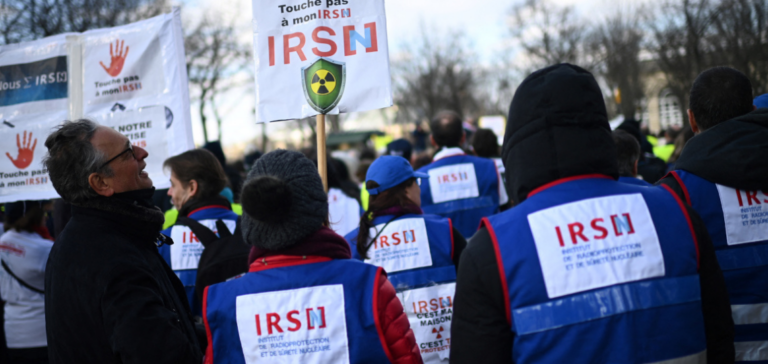Recent statements by unions at the Institut de Radioprotection et de Sûreté Nucléaire (IRSN) underline their deep concern about the French government’s proposed reform of nuclear safety. Moreover, in their view, this reform could lead to a significant reduction in the protection of the population in terms of nuclear safety.
Opposition to Government Reform
At a general meeting held on November 20, the IRSN inter-union clearly expressed its opposition to the bill. This opposition follows the cancellation of a key meeting with the Minister for Energy Transition, Agnès Pannier-Runacher, which exacerbated discontent among employees. Indeed, the planned reform involves merging IRSN with other entities by January 1, 2025, a strategy which, according to the unions, would seriously compromise the governance and effectiveness of nuclear surveillance in France.
Potential impact of the reform on nuclear safety
The main concerns raised by the unions include the deterioration in the quality of nuclear and radiological risk assessment, due to a separation of the various expert assessments. They also point to a loss of transparency vis-à-vis the public, particularly with regard to the publication of technical and scientific opinions, a current pillar of IRSN regulation.
Response from the Minister’s office
The response from the Minister’s office, citing scheduling constraints to justify the postponement of the meeting, only fanned the flames of union anger. They see this postponement as a lack of consideration for the major challenges they face. These concerns are not limited to technical and operational aspects, but also encompass major changes in working methods, relationships between players in the sector, and staff status.
In protest, the unions have called a strike for December 13, which coincides with the planned presentation of the bill to the Council of Ministers. However, this mobilization underlines the seriousness with which the unions perceive the potential consequences of this reform for nuclear safety in France.
The strike announced by IRSN unions against the reform of French nuclear safety raises important questions about safety, transparency and efficiency in this critical sector. This conflict highlights the need for constructive dialogue between the government and experts in the field, to ensure optimum protection for the population while embracing the necessary evolution of the system.





















